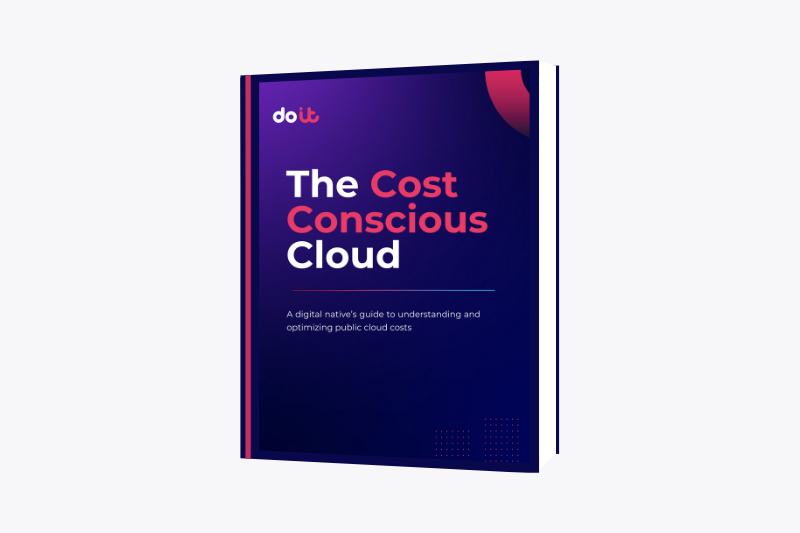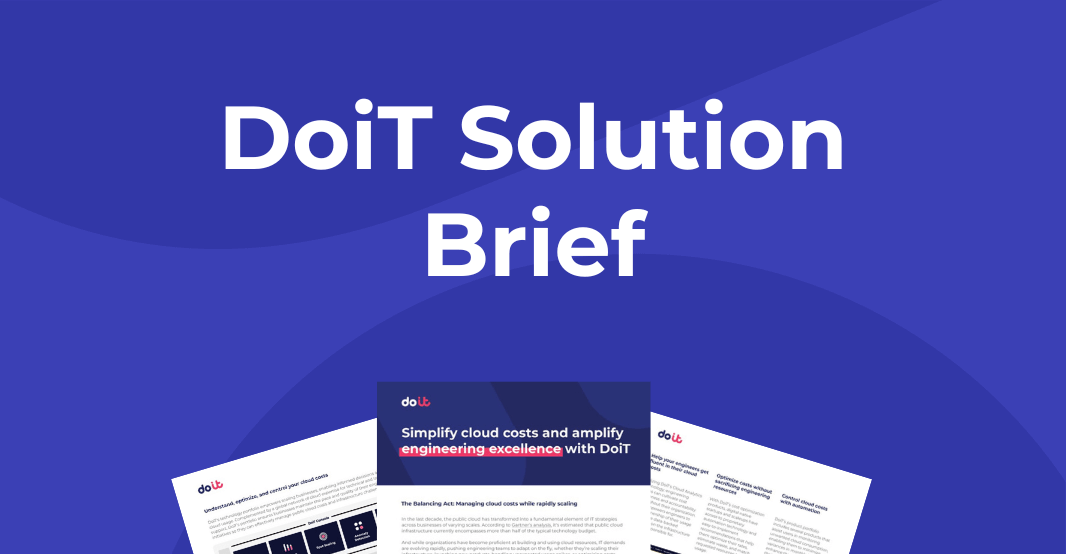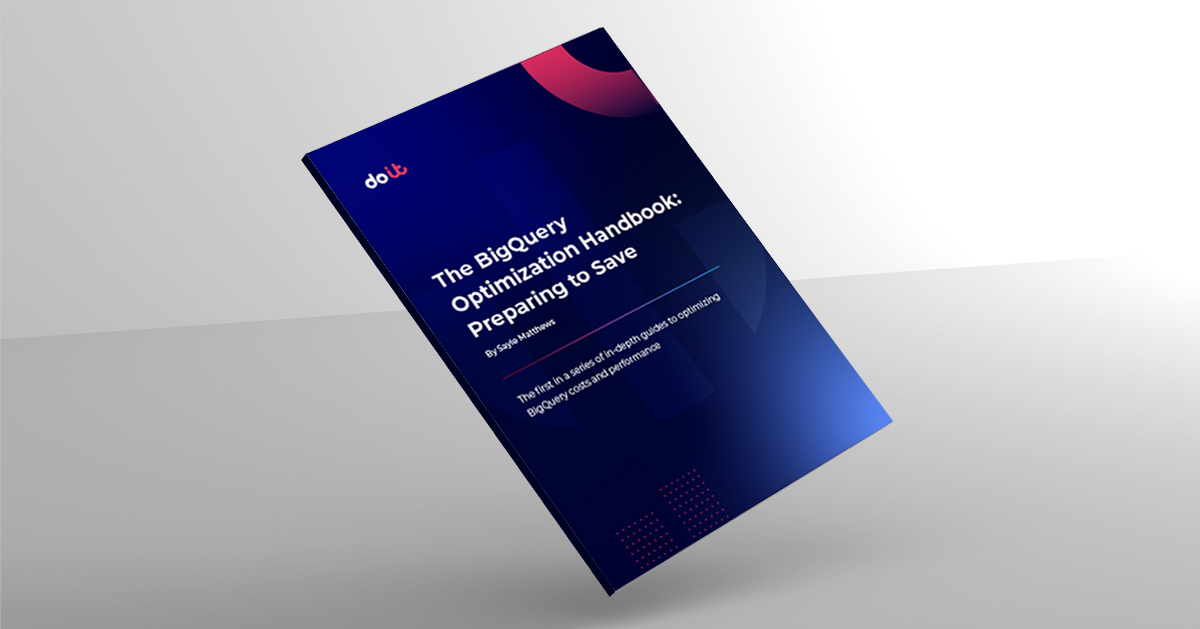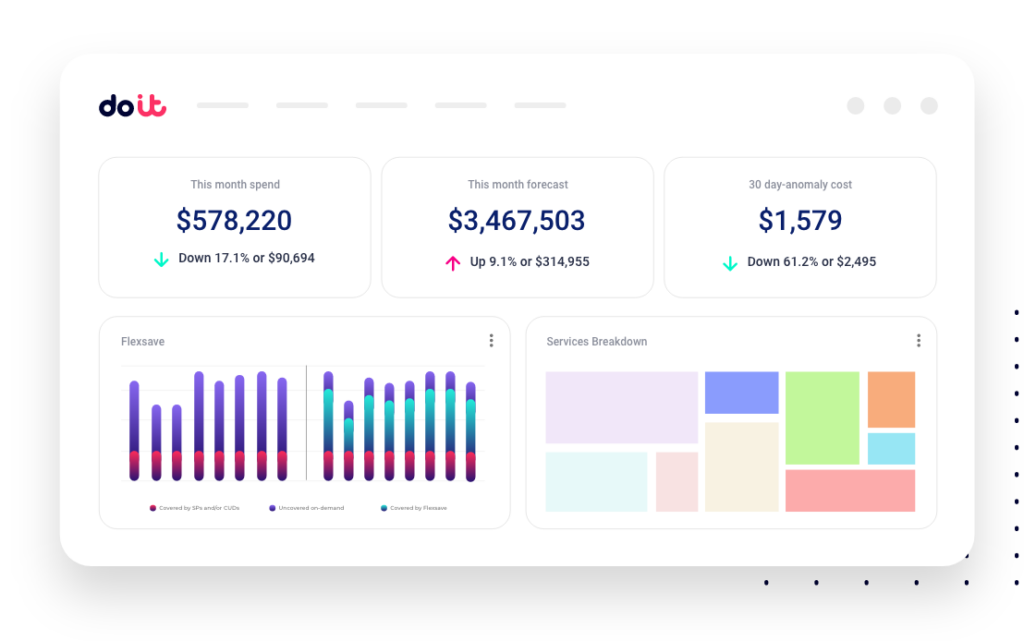
クラウド活用への近道
クラウド利用状況の全体像から詳細まで、DoiT Cloud Navigatorを使えば直ぐに把握できます。
本当に必要なサービスに料金を支払っていることを確認し、無駄な支出を防ぎます。
是非ご自身でお試しください
2,000社を超えるDoiTのお客様が、Cloud Navigatorでどのように
クラウド利用状況を管理分析しているのか、下記セルフ・デモツアーにて
是非実際に体験ください。
私たちはあなたに見せるために大きなものを持っています!
デスクトップデバイスに戻ってください。
クラウドを最大限に活用するにはどうすればよいでしょうか?
DoiTのインテリジェントテクノロジーは、エンジニアリングとFinOpsのリーダーがクラウドを最大限に活用するための洞察と管理ツールを提供します。
観測可視化
観測していなければ管理はできません。 エンジニアからエグゼクティブに至るまで、堅固なコストインテリジェンスのためにクラウドの利用状況を一元管理できます
「DoiTのテクノロジーは、我々のクラウド利用実態を分析し、CFOとCOOに対して私たちが何に幾ら費やしているのか、それが何故かについて簡単に理解できるよう支援してくれます。」
– Jake Colman, VP of Engineering, Derivative Path
コストの分配
ROIを最大化するためにはコストの責任所在を明確にすることが不可欠です。 アカウント、製品、プロジェクトに支出を割り当て、コストの最適化とクラウドガバナンスの基盤を構築します。
「Flexsaveのおかげで、コンピュートリソースの動的な使用に直面してもコストは安定しました。 これにより、インフラ単価が最適化されていることを理解している当社は、製品の開発に集中することができるのです。」
– Koby Molcho, VP of Research & Development, Dataloop
ガバナンス
クラウドへの投資には確証が必要です クラウド利用料のアラート、予算管理、およびその予測をもって、コスト異常を検出し、クラウド予算が十分に監視され、維持されるように適切なガードレールを設定します。
「DoiTとの最も重要な議論の一つは、クラウドのガバナンスです。 私たちの最終目標は、プラットフォームとデータの流れを完全に可視化することです。 これは明確な技術的検証、実績のあるコンプライアンス、コスト最適化、セキュリティの向上を意味します。」
– Antoine Jacoutot, VP Platform Engineering, Sunday
クラウドを最大限に活用するには
DoiTのインテリジェントテクノロジーは、エンジニアリングとFinOpsの両観点から
クラウドを最大限に活用するための一元管理機能と最適化の洞察を提供します。
観測していなければ管理はできません。 エンジニアからエグゼクティブに至るまで、堅固なコストインテリジェンスのためにクラウドの利用状況を一元管理できます
ROIを最大化するためにはコストの責任所在を明確にすることが不可欠です。 アカウント、製品、プロジェクトに支出を割り当て、コストの最適化とクラウドガバナンスの基盤を構築します。
クラウドへの投資には確証が必要です クラウド利用料のアラート、予算管理、およびその予測をもってコスト異常を検出し、クラウド予算が十分に監視され、維持されるように適切なガードレールを設定します。
組織のステークホルダーのためのソリューション


FinOps(クラウド財務&Dev/Ops)
お客様が行う決定は、会社のコスト構造に影響します。日々の業務は常に最適化する必要があります。 コスト削減の機会を把握し、予期しないコスト急増には能動的に対応する必要があります。


組織の様々なステークホルダーのためのソリューション

FinOps(クラウド財務&Dev/Ops)
お客様が行う決定は、会社のコスト構造に影響します。日々の業務は常に最適化する必要があります。 コスト削減の機会を把握し、予期しないコスト急増には能動的に対応する必要があります。
関連資料参照

The Cost-Conscious Cloud
For as many challenges as cloud technology solves, many businesses still struggle to simplify IT budget and spending.

DoiT Solution Brief
A short guide to DoiT’s product portfolio and how it can help you manage your cloud costs while rapidly

The BigQuery Optimization Handbook: Preparing to Save
Learn from DoiT cloud expert Sayle Matthews key steps in optimizing BigQuery costs and performance.






















